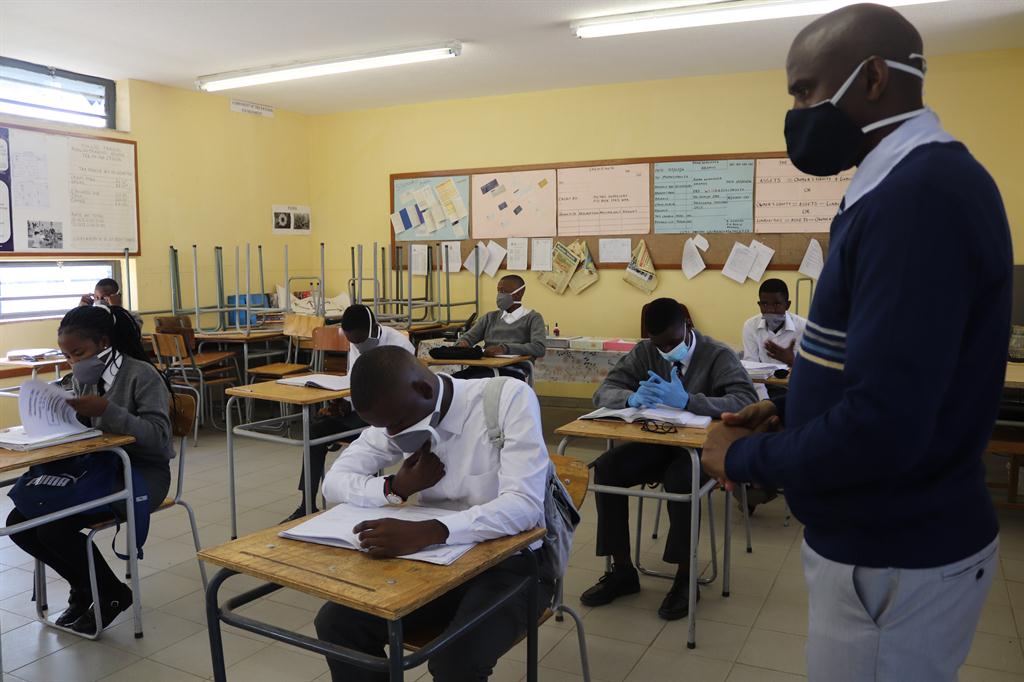Revised admission requirements to higher learning and local training institutions
With changes to the admission requirements of higher education and training institutions, The Zone aimed to gain a better understanding of what these changes entail.
Understanding the changesMariselle Stofberg
The ministry of education, arts and culture released a circular with information on the general admission and entry requirements to training and higher learning institutions in Namibia, as well as public universities in South Africa.
There are fears of the impact of the sudden change in admission on learners and their opportunities for further studies.
“In order to increase the access and improve quality of senior secondary school graduates, the ministry conducted a basic education curriculum reform. The old Namibia Senior Secondary School Higher Certificate (NSSCH) level was replaced by the Namibia Senior Secondary School Higher Certificate Advanced Subsidiary (NSSCAAS) level, which is internationally equivalent to that of an AS level qualification. The impact of the change on learners means that they will be required to work harder to qualify for NSSCAS. However, most of the NSSCAS level graduates will be assured of admission to tertiary institutions since NSSCAS has a point scale ranging from six to 10 points (E-A grades) to one to eight points (G-A* grades),” Sanet Steenkamp, the ministry’s executive director said.
The ministry said schools should strengthen the guidance of learners on issues related to subject choices and career pathways in secondary schools through life skills.
Steenkamp said learners are encouraged to remain resilient and committed to their studies as teachers are available for their support and assistance.
“The future of the country is in the hands of the youth and they should be honing their critical thinking skills to prepare themselves for the world out there.”
The Namibia Students Financial Assistance Fund (NSFAF) confirmed that its loan requirements and policies remain unchanged, but are subject to change in future.
Table/infographic
Institution
Admission requirements
Minimum grades needed
Vocational Training Colleges (TVET) under Namibia Training Authority (NTA)
Technical and Vocational Education and Training (TVET)
20 points in six subjects
F in English, mathematics and science.
Physics is a compulsory subject for technical subjects
For candidates who had pre-vocational subjects and wish to enrol in related vocational fields
NSSCO qualification and 18 points in six subjects
F in English, mathematics and science.
D in respective pre-vocational subjects
Namibia University of Science and Technology (NUST)
Undergraduate degree programme
NSSCO or equivalent qualification
Minimum of 25 points in a maximum of five qualifying subjects
E or better in English
International University of Management (IUM)
Standalone programmes
20 points in the best five subjects
D in English first or second language on NSSCO or NSSCAS level
Diploma in education (junior primary phase)
23 points in the best five subjects
NSSCO or NSSCAS level
Bachelor degree and integrated bachelor honours degree programme
25 points in the best five subjects
D in English first or second language on NSSCO or NSSCAS level
University of Namibia (Unam)
Undergraduate degree programmes
27 points on Unam’s scale in five subjects
Two subjects on NSSCAS level with a D average or higher
Three subjects on NSSCO level with a C average or higher
English must be at a C minimum on NSSCO level
Three subjects on NSSCAS level with a D average or higher
Two subjects on NSSCO level with a D average or higher
English must be at a C minimum on NSSCO level
Undergraduate diploma programmes
23 points on Unam’s scale in five subjects
Two subjects on NSSCAS level with an E average or higher
Three subjects on NSSCO level with a D average or higher
English must be at a D minimum on NSSCO level
Public universities in South Africa
Undergraduate degree programmes
At least four subjects on NSSCAS and one on NSSCO level
Two of the five subjects must be languages (one must be a first language and on NSSCO level)
English requirement can be met by candidate with English first or second language at NSSCO or NSSCAS level (offers first language)




Comments
My Zone
No comments have been left on this article